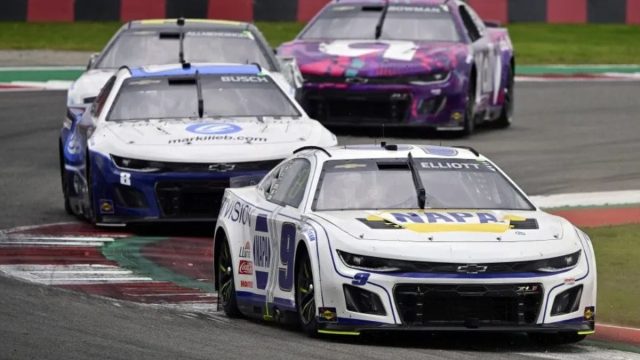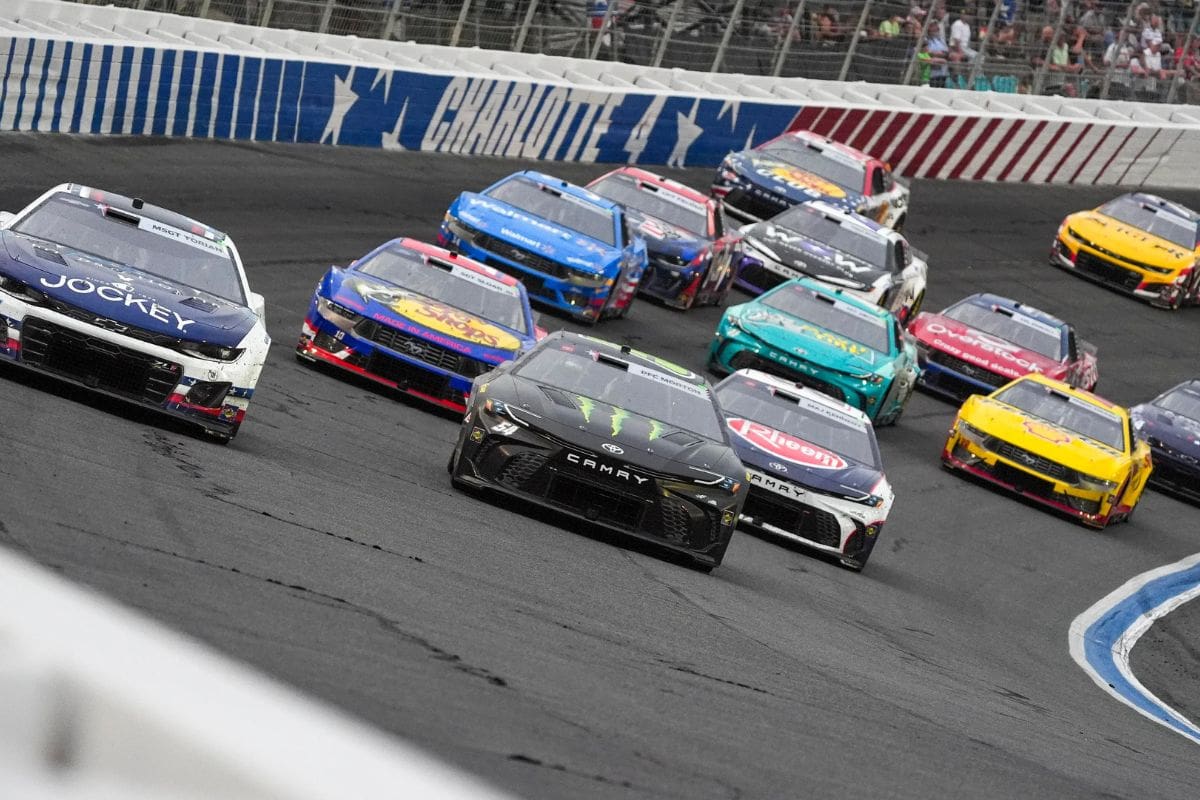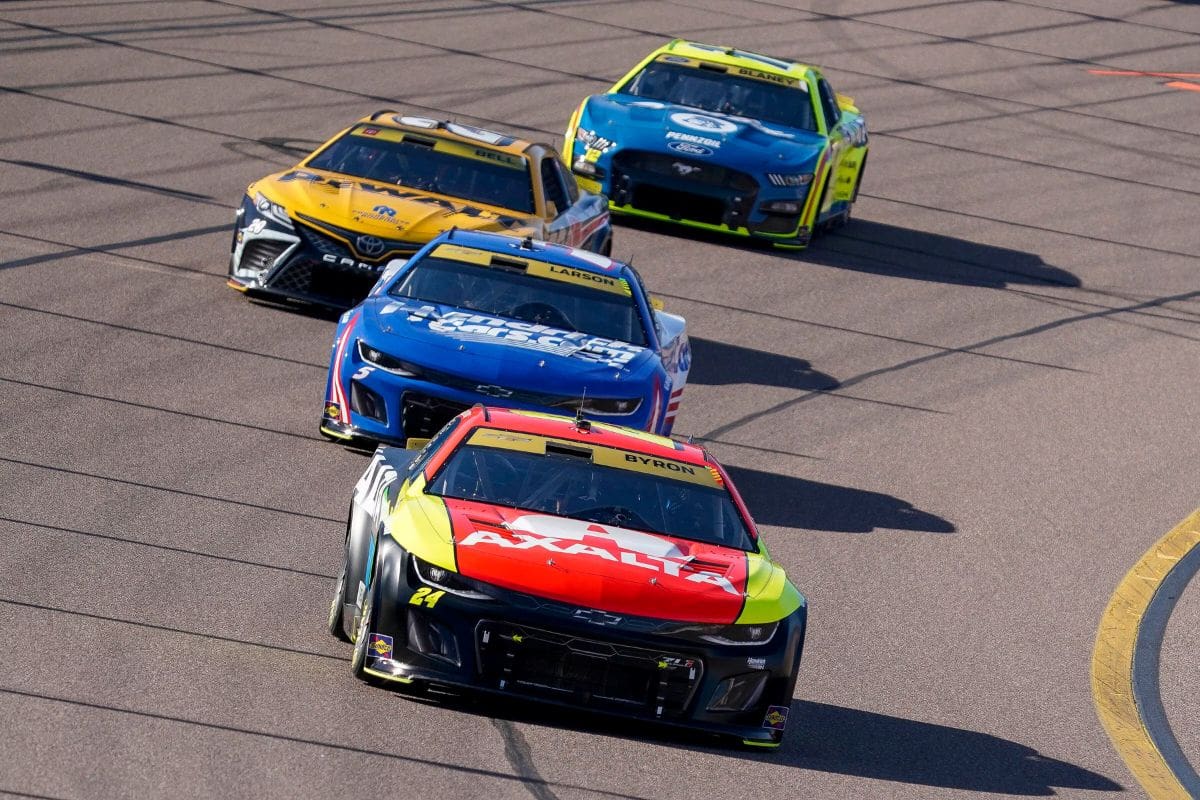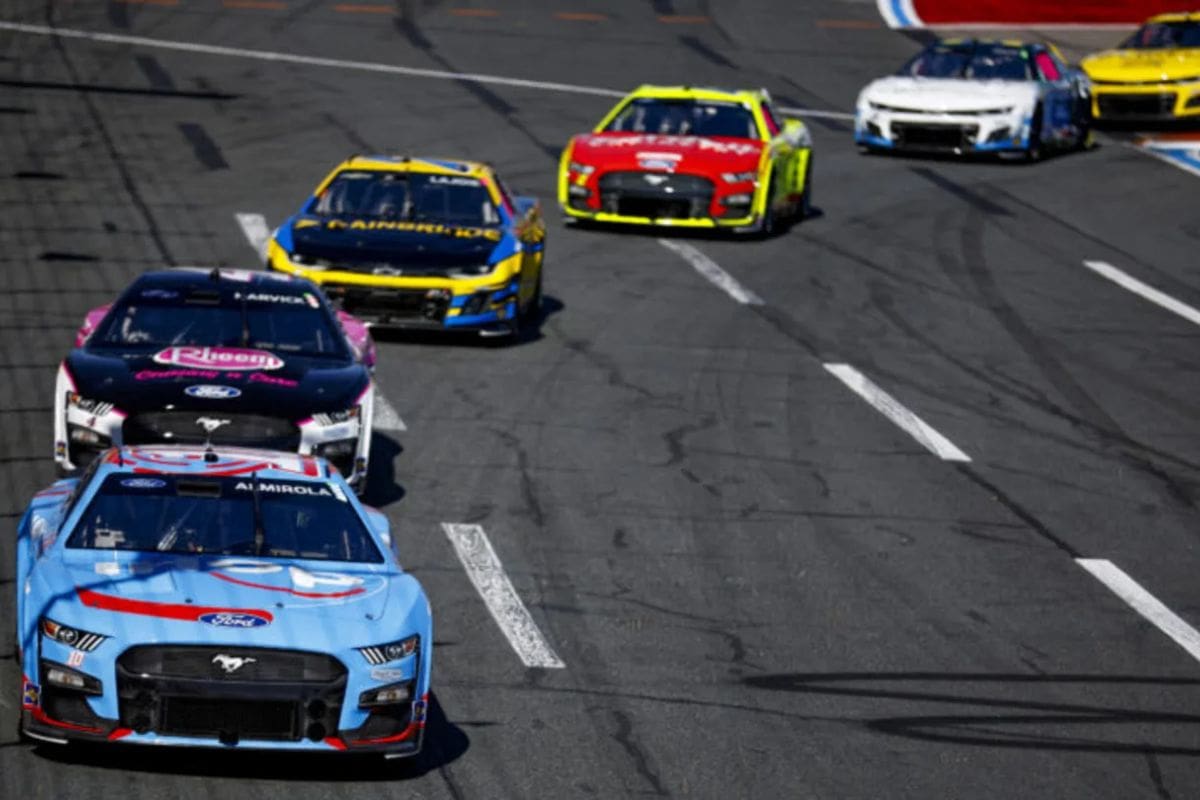Rogue Walmart Sign Should Cost SMI Millions: The recent incident at the Quaker State 400 has ignited a critical conversation within NASCAR regarding the operational oversight of Speedway Motorsports Inc. (SMI). Insiders are advocating for substantial fines, emphasizing the need for accountability in view of the safety risks posed by the rogue Walmart sign. This call for measures raises questions about the effectiveness of current safety protocols and the potential implications for the integrity of the sport. As discussions unfold, the broader impact on NASCAR’s governance and the future of competitive fairness remains to be seen.
Key Highlights
- NASCAR insiders are advocating for significant financial penalties against SMI for the operational oversight during the Quaker State 400 incident.
- The rogue Walmart banner on the track raised serious safety concerns, impacting all playoff contenders and race integrity.
- Critics argue that SMI’s failure to promptly clear the sign demonstrates a lack of accountability in race management.
- Historical precedents of unusual cautions highlight the need for stricter safety protocols and operational efficiency in NASCAR.
- Increased fines may serve as a deterrent for future lapses and promote better governance within the sport.
The Incident at the Quaker State 400
The unexpected disruption at the Quaker State 400 has sparked considerable debate within the NASCAR community. A rogue Walmart banner, which had dislodged itself from its position, catalyzed a series of events that ultimately altered the race’s outcome.
With just ten laps remaining, the deployment of the sixth caution flag bewildered fans and competitors similarly, as track officials took an extended five laps to resolve the situation. This incident raises critical questions regarding the operational protocols in place during moments in races.
Ty Gibbs and Daniel Suarez, who were vying for the lead, found their momentum abruptly spoiled, allowing Joey Logano to capitalize on the misfortune. While NASCAR has protocols for managing such disruptions, the execution in this instance left much to be desired. The delay affected the competitors’ tactical positioning and highlighted vulnerabilities in race management, particularly concerning the impact of extraneous elements, such as advertising signage, on race integrity.
Furthermore, the ensuing debate over accountability has drawn attention from insiders and analysts similarly. The controversial discussions among industry figures, particularly those on the Door Bumper Clear podcast, indicate a growing sentiment that fines or penalties may be warranted against Speedway Motorsports Inc. (SMI) for this lapse in operational oversight.
As NASCAR continues to evolve, the focus must remain on ensuring that such disturbances do not compromise the sport’s integrity and the competitive fairness that fans and teams expect.
NASCAR’s History with Unusual Cautions
How has NASCAR’s handling of unusual caution flags evolved over the years? The series has experienced a myriad of bizarre incidents that have prompted the deployment of caution flags, challenging traditional racing protocols. These unusual cautions not only impact race dynamics but also affect championship outcomes, as evidenced by recent events.
| Year | Event Description | Impact on Race |
|---|---|---|
| 2000 | Giant inflatable Tropicana orange | Unplanned caution led to tactical shifts |
| 2018 | Groundhog on track | Delayed race, heightened driver tensions |
| 2020 | Fox sighting at Talladega | Unusual delay, mixed team strategies |
| 2022 | Sign on track at Charlotte ROVAL | Altered playoff standings, controversy |
| 2024 | Walmart sign at Atlanta | Potential playoff implications, scrutiny of SMI |
The Atlanta incident, particularly striking given its similarity to the Charlotte ROVAL occurrence, highlights a recurring challenge within NASCAR’s framework. It reveals a pattern where external factors, often beyond a team’s control, can drastically alter race trajectories, leading to disputes over fairness and consistency.
Opinions from the Door Bumper Clear Podcast
Listeners of the Door Bumper Clear Podcast were treated to an open discussion regarding the recent controversy surrounding the caution flag incident at Atlanta. Brett Griffin, who briefly stepped in as a spotter for Austin Dillon, articulated a blend of humor and frustration over the incident, suggesting that a sign from Walmart represented the chaos of the situation. His evocative imagery, likening spectators to “motherf—ers in their pajamas,” emphasized the absurdity of the scenario.
“Of course it said Walmart… It didn’t say Amazon Prime, it didn’t say Target. It said Walmart… I mean like I was just picturing motherf—ers sitting in the stands in their pajamas when I saw that sign… Then I was picturing people fighting over Christmas presents. I’m like, could this be any more Walmart?” – Griffin
However, the levity quickly gave way to a serious critique of race management. Griffin’s discontent escalated as he recounted how the caution affected the race’s integrity, stating, “It f—ed a whole race up with 11 to go.” He pointed out the inefficiency of NASCAR’s response, taking five laps to clear the sign. This raises critical questions about operational procedures in high-stakes environments where timing is paramount.
“Then it took five laps [for NASCAR] to pick the sign up and go back green…”
“It can’t be that hard to secure a sign in 2024…” – Griffin
The crux of Griffin’s argument revolved around accountability. He provocatively suggested that SMI, responsible for the track and the signage, should face substantial penalties, but acknowledged the dilemma facing NASCAR in policing itself. His assertion that “something 100% should come down on somebody” highlights a broader issue within the sport regarding responsibility and governance.
Just forgive me for saying this because this is where it gets weird. This is on SMI. SMI is in charge of that sign and that track. NASCAR is in charge of the event. NASCAR should fine the ever-living s— out of that track. But the problem is what’s NASCAR going to do if it’s their track? Fine themselves?…” – Griffin
This discussion not only reflects the frustrations of insiders but also invites deeper contemplation about the frameworks in place for operational oversight in NASCAR, especially as the sport evolves in 2024 and beyond.
NASCAR’s Caution Policies
Amid ongoing debates about race management and accountability in NASCAR, the policies governing caution flags warrant critical examination. The decision-making process surrounding caution periods, particularly for debris, reflects the balance between safety and competitive integrity.
Former Senior VP of Competitions, Scott Miller, provided insight into NASCAR’s rationale during a contentious finish at the 2017 Firekeepers Casino 400. His remarks illuminated the subtleties of caution calls, especially when debris is involved.
Miller emphasized that the ability to identify debris is paramount. If officials can ascertain what the debris is and determine it poses no threat, they may opt to leave it on the track. However, in cases where the debris cannot be identified and could potentially endanger drivers, NASCAR tends to err on the side of caution, deploying the yellow flag to guarantee safety.
“If we are actually able to identify what it (the debris) is and feel like it’s something that is OK to leave out there, then we’ll do so. But if we can’t identify what it is exactly, and it could pose something dangerous, then we’ll usually, or almost always, error on the side of caution and safety and put the caution out in those circumstances.” – Miller
This principled approach aims to mitigate risks, yet it also raises questions about consistency and transparency in enforcement. The implications of these policies stretch beyond mere race outcomes; they affect team strategies, driver performance, and fan engagement.
Frequent cautions can disrupt the rhythm of a race, leading to frustration among competitors and viewers similarly. As discussions regarding NASCAR’s accountability gain momentum, the effectiveness and clarity of caution policies must be scrutinized.
Establishing a more transparent framework for decision-making could improve trust in the sanctioning body and foster a more competitive environment, ultimately benefiting the sport as a whole.
Perspectives on the Incident
Multiple perspectives have emerged regarding the recent incident involving the Walmart sign during the race in Atlanta, highlighting the complexities of race safety and management. On one hand, there is a consensus that the presence of the sign could have led to a dangerous situation, especially given the high speeds at which cars travel—often exceeding 190 mph. This concern emphasizes the necessity for NASCAR to maintain rigorous safety protocols and guarantee that the racing environment is devoid of unnecessary hazards.
Conversely, TJ Majors, a notable voice in NASCAR discussions, provides a more tempered viewpoint. He emphasizes the inherent challenges of managing aerodynamics at such high velocities, likening the turbulent air behind a race car to that experienced behind a semi-truck on the highway. His commentary suggests that while the situation was concerning, it is perhaps an inevitability in the sport, indicating that lapses in safety measures may occur from time to time.
“These cars are going by at 190 mph in a pack and I mean you see how bad the air is behind a semi when you’re doing 70 on the highway. Imagine you know, the air on that fence right there (on the racetrack).” – Majors
If you were asking for a sign … we found one for you! 😂 pic.twitter.com/qZuLXSIF7Q
— Dirty Mo Media (@DirtyMoMedia) September 9, 2024
However, this perspective raises critical questions about the accountability of race management. While Majors’ acknowledgment of the challenges is valid, it should not serve as a justification for complacency.
The implications of the incident extend beyond immediate safety; they resonate through the playoff landscape, affecting all 16 contenders. As a result, it is crucial for NASCAR to review and improve their operational procedures to prevent future occurrences, particularly during crucial moments in the season.
News in Brief: Rogue Walmart Sign Should Cost SMI Millions
The call for substantial fines against Speedway Motorsports Inc. following the Atlanta incident highlights critical concerns regarding driver safety and competitive integrity within NASCAR. Such financial penalties are viewed as necessary measures to enforce accountability and promote compliance with safety protocols. By addressing operational failures, NASCAR can mitigate risks associated with similar occurrences in the future. Ultimately, the incident serves as a reminder of the importance of stringent oversight to preserve the sport’s credibility and protect its participants.
ALSO READ: NASCAR and 23XI Racing Poised for a Legal Battle? Insider Drops Major Hint



